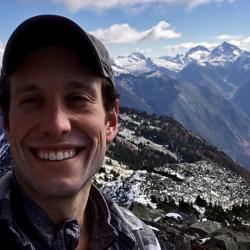Biography
From March 2020: Lecturer in the Department of Plant Sciences, University of Cambridge
From March 2020: Senior Member at Newnham College, University of Cambridge
2017-2019: USDA National Institute of Food and Agriculture Fellow, Stanford University
2015-2017: NOAA Climate and Global Change Fellow, Stanford University
2010-2015: PhD fellow, Princeton University
Research
How do ecosystems respond to changes in disturbance regimes, such as fire suppression in naturally burning savannas, or more frequent burning in forests that historically only burned periodically? What fundamental processes govern the responses of ecosystems to these changes, such as the role of soil properties and plant community composition? These are some of the questions that our lab seeks to understand. We ground our work in experimental research, taking advantage of the diverse sets of fire manipulation experiments across the globe combined with the advances in ecosystem models.
Our work spans many ecosystems across the globe in Africa, South America, and the United States to try to ascertain generalities in how ecosystems respond to fire, but also using natural variability as a platform to test hypotheses around mechanisms.
- How resilient are western US forests to changing fire regimes?
- What biogeochemical changes in soils either buffer against or accelerate ecosystem carbon and nutrient losses?
- How do plant traits modify the effect of fire on ecosystems?
- What are global patterns in how ecosystems respond to fire across the tropics?
Publications:
Adam Pellegrini - Google Scholar
Pellegrini lab website:
Pellegrini Lab: disturbance and ecosystem function (pellegriniecologylab.com)

